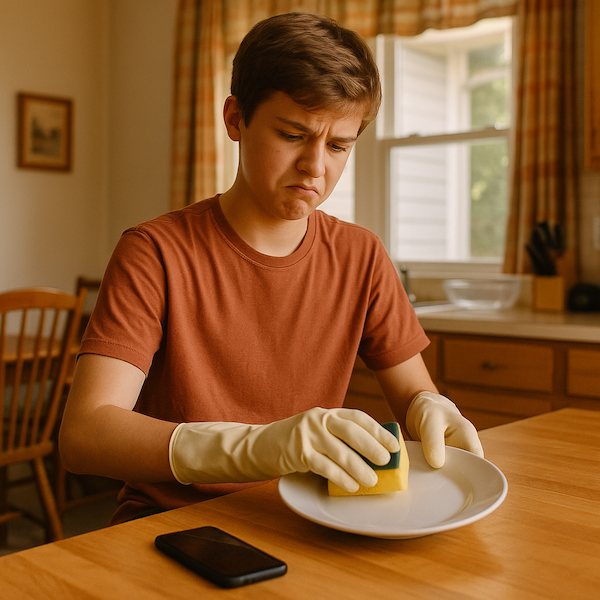Parenting teens has always been a balancing act, but the digital age has added new twists—especially in Egypt, where smartphones are everywhere. A new study from Cairo is sparking debate: researchers found that teens who spend more time on social media are less likely to help with chores or take on family responsibilities. What’s behind this shift, and what can parents do?
The Digital Distraction
The study’s findings are clear: as screen time increases, willingness to participate in household tasks drops. Social media platforms offer instant gratification and a constant stream of entertainment. For teens, this can make everyday chores seem dull by comparison. The result? A growing sense of entitlement and a reluctance to engage in family life.
Beyond “Laziness”
It’s tempting to label this behavior as simple laziness, but the reality is more complex. Adolescence is a time when young people seek independence and form their identities. Social media amplifies this process, encouraging teens to focus on their online image and peer approval. This can lead to a disconnect from real-world responsibilities and family expectations.
The Parent’s Role
So, what can parents do? The study’s authors recommend a balanced approach:
- Set Clear Expectations: Define chores and responsibilities together. Consistency is key.
- Encourage Dialogue: Talk openly about how social media affects mood and motivation.
- Model Responsibility: Show by example how everyone contributes to the household.
- Foster Autonomy: Let teens have a say in how and when they complete tasks.
- Limit Screen Time: Create tech-free times or spaces to encourage engagement at home.
Family values remain strong in Egypt, and extended relatives often play a role in raising children. This cultural strength can be leveraged to reinforce positive habits. Involving grandparents or other family members in discussions about responsibility can help teens see chores as a shared effort, not just a parental demand.
Looking Forward
The digital world isn’t going away, and neither are its challenges. But by understanding the psychological and cultural factors at play, parents can help teens find a healthy balance between online life and real-world duties. It’s about empathy, structure, and open communication—a recipe that works in any culture, but especially in Egypt, where family ties run deep.







Leave a Reply
You must be logged in to post a comment.